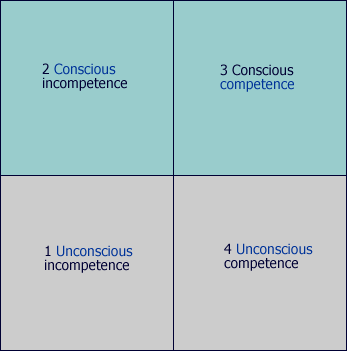 Once upon a time a millipede met a management consultant. (These insects do sometimes run into each other.)
Once upon a time a millipede met a management consultant. (These insects do sometimes run into each other.)
The consultant admires the amazing walk of the millipede and says “That’s a remarkable skill you have there, the way you coordinate all those legs so beautifully. What a marvellous metaphor for organisations! Will you let me model it? Then I can sell the idea to my clients and transform the world of work!”
So the consultant spends hours with the insect, making it examine the minute details of its actions. After which, the consultant has a massive best-selling book and training course with which to amaze and mystify his clients: “The Seven Management Secrets of the Millipede – Maximising Profits for 21st Century Organisations.” Meanwhile, the creature is so stressed at the sudden realisation of how complicated its legs are… that it can’t walk properly anymore.
This story came to mind reading a fascinating observation from the website of Dr James Willis, drawn from a review of his book, Friends in Low Places
The author quotes a wonderful piece of research which found that people are half as good at remembering a face in a photograph, if they’ve tried to describe it when they first see it. If we only trust our innate and wordless ability to remember a face, we are twice as likely to remember it: a metaphor for general practice. Doctors are being constrained not to rely on their hard-won experience, knowledge and skill, their unarticulated sense of what needs to be done. But instead always to use their conscious brain function to work out a solution. Thus quite possibly reducing their effectiveness by half.
Jack Vinson – who spotted this fascinating item – comments
When a person knows their work so well, they don’t need to articulate how they know it. This blurb suggests that in some cases, asking someone to explain their thinking actually reduces the value of their unconscious knowledge by forcing them to consider how it is they know something.
Taking this a bit further, there’s a popular model of learning that looks like this:

With the idea that we start at bottom left and proceed clockwise to bottom right. Quite a reasonable model but I think it ignores a whole lot of stuff that skips straight from 1 to 4 and doesn’t trouble with going into the world of the explicit at all. Including most of what infants learn from their parents. Or if I think of learning to fly, some of my learning did follow a clockwise path, but a lot was not like that at all; it was more intuitive, picked up as I went along but not an explicit process.
Outside the temples of the explicit
Of course, it often very interesting to bring to light hitherto unconscious processes. But it can’t be the whole story. It strikes me that most business bookshelves are temples to the explicit, articulating an assumption that somehow if we get explicit knowledge, all will be well.
I think a pitfall of the ways we assess training and faciliation is to depend too much on feedback forms and respond to the pressure for people to leave the room “with a clear idea of how things will apply to their daily lives”. But what if they learnt a whole lot implicitly? ..if they did, then our demand for “proof” may actually undermine what was learnt.
I leave the last words to the same review posted on the James Willis website:
We are trapped in a culture in search of certainty, seeking to abolish uncertainty even. We are in a culture which attempts to deny and abolish the wonder and glory of chaos and serendipity and chance ? in the education of children, in the care of the sick. We are trained by the media, by our masters, to have zero tolerance of risk due to a belief that the end of uncertainty is in sight. This leads to the horror expressed by our masters that half of all doctors are of below average performance, and to their instruction that everyone and everything must show excellence. We need a few lessons in the use and abuse of the English language.
I would add: we are a culture which has lost its spiritual base, and is therefore trying to construct one out of shaky models. Those in control make models. They then constrain us to live and work within those models. The model becomes the master. Oh dear, I?m getting as worked up as James does himself.
[Thanks to Richard Gayle for his part in linking to this]






